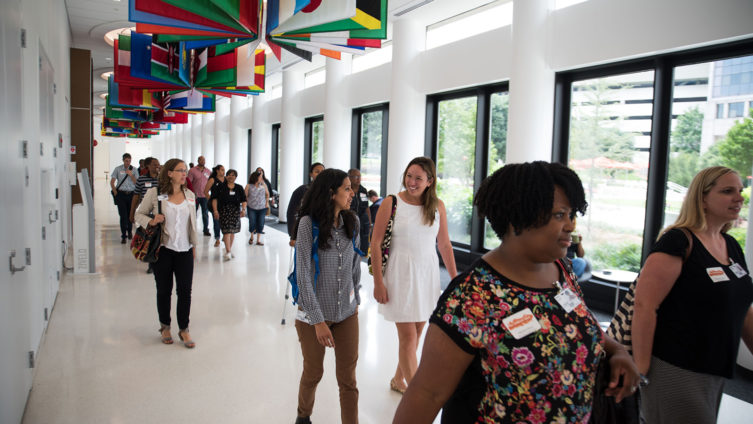
We have made a strong financial investment in creating a culture of learning and leading by increasing our professional development budget by 160% over the past four years. This commitment has enabled 100% of our faculty and staff to attend 56 workshops and/or conferences during the 2016-2017 school year; our investment in our community is an investment in our children.
Emilie Brick, one of our newest early learning teachers, attended the Boulder Journey Learning Conference this summer for the first time. “I think continuing the mindset of being lifelong learners creates the culture that no one is perfect and we can work together to make a better school,” she said. “It creates a mindset that making mistakes is okay. We can set that expectation and model it for our students. Modeling what that looks like as a result gives children a different approach.”
Using our strategic plan and philosophy of learning as a road map to guide our decisions around teaching and learning, we are able to identify, implement, and align better professional learning opportunities for our faculty and staff. Providing robust learning opportunities such as Lucy Calkin’s Writer’s Workshop, Math in Focus, Project Based Learning, Responsive Classroom, SEE-KS, anti-bias frameworks, and Boulder Journey Learning Conference allows our teachers to stay current in their field as well as deepen their knowledge and develop new skills.
“Everything is changing so fast with technology and communication that you almost have to learn as an adult or you’ll be stuck behind. It’s important to be able to bring that to your kids and figure out how to use things like social media and new technology in the classroom,” said another early learning teacher.
Many educators have already seen positive changes in their classrooms from the information and advice obtained through these learning opportunities. Emilie, who teaches 3- and 4-year-olds, said, “this year we had full control over our classroom. I designed it after the calm natural feel of the Boulder Schools and have received lots of positive feedback from parents seeing how the environment has impacted their children. [I’ve learned that] it helps them gradually transition into the classroom. The calm, welcoming environment make families more comfortable.”
Well-informed teachers help create well-informed students. Research shows that student learning and achievement increase when educators participate in effective professional development. We know that the best professional development is ongoing, collaborative, experiential and allows educators to instill a love of learning in their students.









